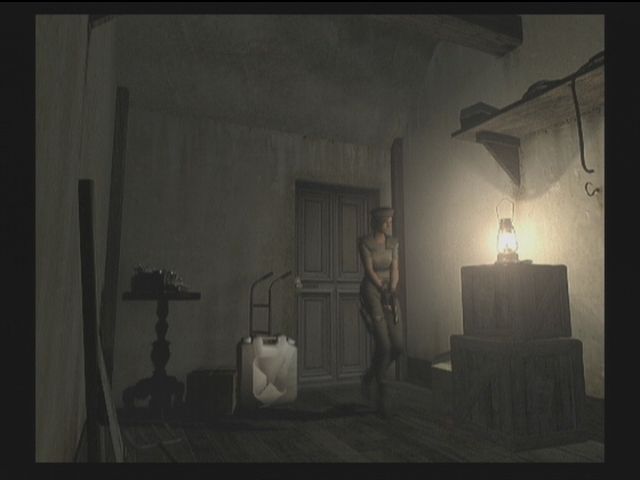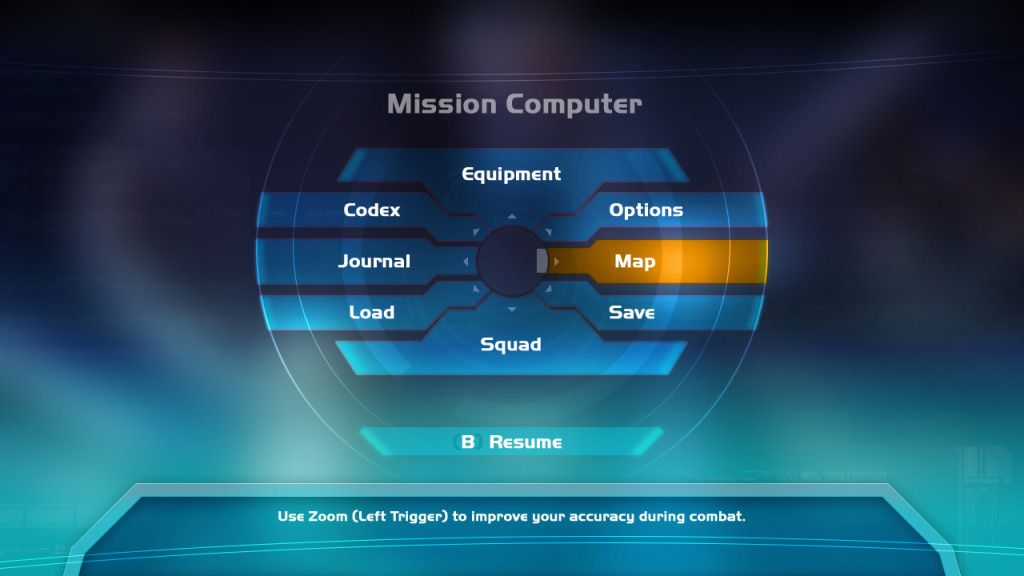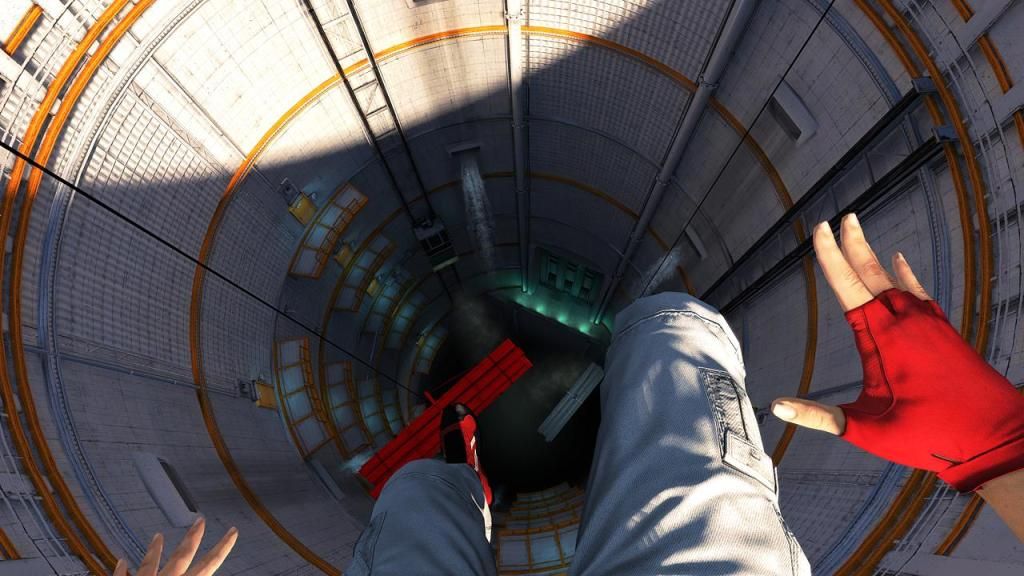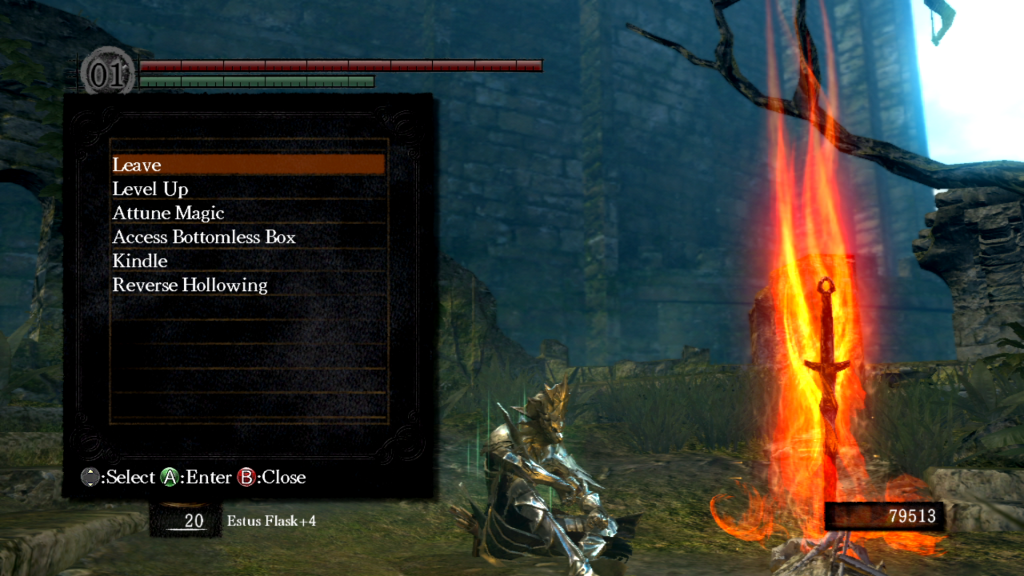Today I'm going to talk about 4 games and some methods they use to preserve my progress. I will explore how I use each system, and see if I can observe any influences they may have on my play-styles. More importantly I want to know how you play your games. As an aspiring level designer and play-test analyst, one of the things I love to do the most is experiment, study games, and study people. I always want to see how gamers interact with various systems and designs, collect data, and hopefully learn something from the results.
There are quite a few ways you can let players save their progress during an adventure. For example, a couple general concepts are save anywhere or checkpoint, but the truth is, most of the games you play will have a variety of elements mixed together in order to best serve the individual game it's designed for. The system you ultimately end up with will likely be the result of a balance between ideas your team came with originally, and ideas you wanted to add because of play-testing feedback. I believe that the type of progress-saving-system you use will have a huge impact on the experience player's have during a play-session.

Resident Evil (GC remake): I've owned this and had it in my backlog for a long time, but I'm finally playing through it. For the first couple hours I didn't get it. It's so different than what I've been conditioned to expect over the past few generations of game design. The games I'm accustomed to playing are faster paced, saving is convenient, and I'm allowed to hop in and out at my leisure. At first I saw this game as different in a bad way, but a few nights ago I was in a play-session and I suddenly "got it". Often times when I'm playing games I eventually get to a point where I've seen just enough of the gameplay design, and the level design, that I start to understand how it's built and how it affects my experience. Once I started understanding what Resident Evil was doing, I began seeing it as different in a great way. Now I'm into it, and I'm excited to keep going till I finish the adventure. I'm really enjoying this game.
Let's get back to the topic of game saves though. RE uses a save system where your access to the system itself is limited and dependent on an in-game item. There are typewriters spread across the map and you need to interact with one to save, but you can't interact with them unless you have the Ink Ribbon item. How ever many Ink Ribbons you possess at a given time is exactly how many times you can save your game. If you have the Ribbons to save your game, the typewriters themselves become checkpoints, and instead of restarting at the beginning of the game when you die, you will restart from the last time you saved at a typewriter.
How it affects my playstyle
Since the Ink Ribbons appear to be such a limited quantity in the game, I'm trying to make every one count and not waste any. I'm not going to load the game, wander around aimlessly, kill a zombie, than use up an Ink Ribbon to save my game and go eat dinner. Anytime I load my Resident Evil save file I have to make sure that I attempt genuine progress. If I make enough progress by exploring a few areas, unlocking some doors, killing a couple zombies, completing a puzzle, and having an idea on what I want to do next, than I can use up an Ink Ribbon and save my current state. In RE I've become accustomed to saving sparsely.
Positive:
*Making the save feature dependent on a limited in-game resource makes it feel like a part of the survival mechanic, and requires me to use the items wisely
*Each play-session, the burden is on me to do well and engage the game successfully. I must play smart, and play well
*The satisfaction of using items wisely, making progress, and "surviving" is high
Negative:
*Making sufficient progress during a play-session requires time commitment. If you need to do something and must leave the game suddenly, you will either have to use a precious Ink Ribbon, or just quit, loosing any progress you made
*The slow pace, limited resources, and required patience may be too slow, time consuming, or tedious for some players. This save system might frustrate some players to the point that they no longer see a benefit to making progress. They may quit and never come back

Mass Effect: The reason I started brainstorming this blog in the first place is because I observed the stark contrast between the play-styles I have in Mass Effect and Resident Evil. In RE, I've played for several hours and I've only saved 10 times. Since this is my first time playing the RE remake, I don't know how much longer the game will go on and how many times I will save, but I estimate that the total number of times I save my game in RE will be well below 100. Based on how few Ink Ribbons I've come across, I have a hard time believing there will be 100 or more Ink Ribbons across the game for me to find. So I'm accustomed to saving sparingly in Resident Evil, but guess how many times I saved my game during my first full playthrough of Mass Effect? 882 saves.
Mass Effect has a "save anywhere" style system where you can stop anywhere, pause your game, save an unlimited quantity of times, and leave anytime you need to, without penalty or requirement. While playing Mass Effect I naturally became obsessive about details, and equally as obsessive about making sure I never had to go back to replay any sequence lest I screw something up.
The combat in Mass Effect isn't very fun to me so I'd always save before and after encounters so that I wouldn't have to go through them again. There's no point in suffering through another 90 seconds of janky animation, poor cover system interaction, and laser fights. To me, most (not all) of the shooting that happens in the Mass Effect series is there just because it can be, not because it's necessary.
The part of the gameplay I do love though is the dialogue sequences. These games are basically a Star Trek influenced social interaction system dressed up with a superfluous shooting element. The dialogue gameplay is the system I obsess over the most and like to explore. Before I talked to somebody I would save my game so that I had an anchor before I began exploring all the different dialogue choices. Once I saw all the options and found the path I was happy with, I would revert to my anchor save and progress the story on the path I wanted. It's safe to say I've seen every dialogue sequence in this game enough times that I could nearly act them out word for word with the game as they happen.
How it affects my playstyle
With the "save anywhere" system, I was allowed to more-quickly explore the variety of choices the game offered me, and not have to deal with much backtracking or a large time commitment for each play-session. Instead of worrying about surviving and managing limited resources, I was able to spend my energy purely exploring and seeing new things on my own time, at my own pace. I could basically control every aspect of my play-session and progression. If I discovered that making a certain dialogue choice would net me 200 extra credits and +10 Paragon points, I could load my save, pick the option, and get exactly what I wanted.
Even though I always got what I wanted, and had full control, all that repetition and exploration of the system removed any sense of mystery and spontaneity. Also, since I was always able to load a save state from just moments ago, I never had reason to fear loosing anything. Combat and consequence were irrelevant because I could always go back 2 minutes and get exactly what I needed.
Positive:
*You have full control over your time spent during a play-session. You can hop in and out
*You're not penalized for saving
*It is suited well for a large game that will take a long time to complete, and has many variables for you to influence. It's well suited for a game that's all about exploration and narrative
Negative:
*For me there were negatives but the system itself was not causal of those, rather it was how I used the system: Playing sections repeatedly till they lost their initial drama
*A sense of loss or risk is difficult to manifest when you can just go back a few moments and make things right anytime you feel like it. This system wouldn't work in Resident Evil because RE play-sessions have to be full of risk, vulnerability, fear of loss, and the feeling that you aren't in control of the environment

Mirror's Edge: This is one of my favorite games I've ever played and it's not because it's perfect, but because it's so much fun for me. I would kill to be able to help design levels and gameplay for a sequel one day. Mirror's Edge uses a mix of checkpoints and an auto-save feature to preserve player progress. When you come into a new set piece or reach an appropriate checkpoint area, the game auto-saves your position and gives you a notification on screen. However there is also a discrete checkpoint system working behind the scenes in the levels that often puts you right back at the beginning of an obstacle you died on.
How it affects my playstyle
Frequents death was a feedback I heard from friends who played the game. The designers probably saw that trend among players during play-testing and implemented the hidden checkpoint system. The mechanics certainly aren't perfect, but even if they were, the game would still be difficult because the obstacles themselves require very consistent skill application and timing. Most of the times I died I was quickly whisked back to a moment or two before the obstacle that killed me, and I never felt cheated or set back. This adrenaline rush and survival-evasion gameplay in Mirror's Edge doesn't rely on horror, so there's no need to go the Resident Evil route by limiting save opportunities or making the player fear death. Traversing landscapes is where the fun is at in Mirror's Edge, and death is a part of that acrobatic process so there's no need to create excess punishment and set backs.
Positive:
*Works great for Mirror's Edge because the game maintains its difficulty, fast pace, and evasion gameplay while allowing you to not feel cheated and set far back due to death
*You will die from time to time, but will have the chance to learn from mistakes and do better next time
Negative:
*You don't have any control over your saves, so this wouldn't work for an RPG like Mass Effect where you need the freedom to save during long quests and exploration

Dark Souls: This is the more unique of all the examples I've shown. Dark Souls is a long RPG with a sprawling world to explore, but unlike Mass Effect, Dark Souls doesn't have a save-anywhere system, or an auto-save system, in fact the phrase "save game" never even shows up on screen. The game uses a checkpoint system based entirely around bonfires. You will come across bonfires in dungeons, set-pieces, areas, and each bonfire can become your anchor while you're in that particular area. You don't need to acquire in game items to use the bonfires, you just need to sit down at one and you will be anchored there at that spot. When you die you will be re-spawned at that bonfire.
How it affects my playstyle
I love this system. The whole design of the gameplay loop in Dark Souls in amazing, and the bonfires are paramount to the loop. Lighting and sitting at a bonfire will refill a certain amount of your health potions, cure your ailments (not Curse), and you will be able to access your Bottomless Box inventory, Weapon and Armor repair and upgrade systems, and you can level up at a bonfire too. However, when you sit at one, all the enemies in an area will re-spawn as well. There's a lot of risk and reward that happens with healing and anchoring yourself at bonfires.
Player death is like a system itself in the game, and you will die plenty, and that's okay. The game doesn't want you to fear death, it wants you to learn from death. When you die, your souls (currency) and humanity (important item that has many convoluted offline and online applications) are left at the spot you died and you have one chance to retrieve them. If you die on the way to getting them you loose them. That's a bummer, but since you can rest at bonfires and re-spawn enemies, you can farm for souls and make up your soul losses. The enemies are dangerous and you need to fight well to survive, but there's always a lot of rewards to match the risk.
Farming souls in this game is the most fun that farming has ever been for me. I like to use a bonfire as a hub for the area I'm in. I explore the area, learn how to kill all the monsters, find all the items, and farm souls to help me buy new stuff I need. Once I beat the boss and know my way around an area, I move on to the next cool area and start the risk-reward gameplay loop all over again.
Positive:
*Works perfectly for this game and is an essential part of the gameplay loop, character progression, and exploration
*Allows one-stop shopping and removes need for a ton of merchants and NPCs. More time can be spent fighting and dungeon crawling, which is the best part of the game
*Plays to the strengths of the game
Negative:
*Lack of clear explanations and functionality creates confusion. I had to ask friends and other Dark Souls players a lot of questions in order to understand the full functionality of the bonfire checkpoint system
*This wouldn't work in Mass Effect or Resident Evil because the combat is not the draw of either of those games. I fear death in Resident Evil, I have limited resources, and re-spawning enemies would not be fun or useful. Mass Effect is all about shooting people in the face in order to get to the next great dialogue sequence and cut-scene so there's no need to put more shooting into it. Plus the Normandy serves as a fine hub, so you don't need checkpoints in the levels where you can do all your character and item progression
One common thread throughout all the analysis is that each game's progress-saving-system has its own nuances and works quite well for the game in question, but I wouldn't want it to be used in the other games. When you're designing a way for players to preserve progress, it's never as simple as, "Let's put a save button in the game!". Since it's so commonplace to open a menu and see the simple save prompt, it must be easy for us to not realize all the planning and balancing that had to go on behind the scenes for that simple four letter word to show up on the menu (if it's even there at all: Dark Souls).
Once I have the tools and software on my computer to begin building my own games, the time will come when I have to start thinking about ways to allow players to save progress. I will have to experiment until I find the best methods that work for the game. Unfortunately, there's no genie to magically design the perfect system for you.
1. Have any of you opened up a game menu, looked at the save prompt, and wondered how it got there?
2. Do you think that the way a game's progress-saving-system is designed has an impact on your play-sessions in that game? If you do, than how so?







Comments